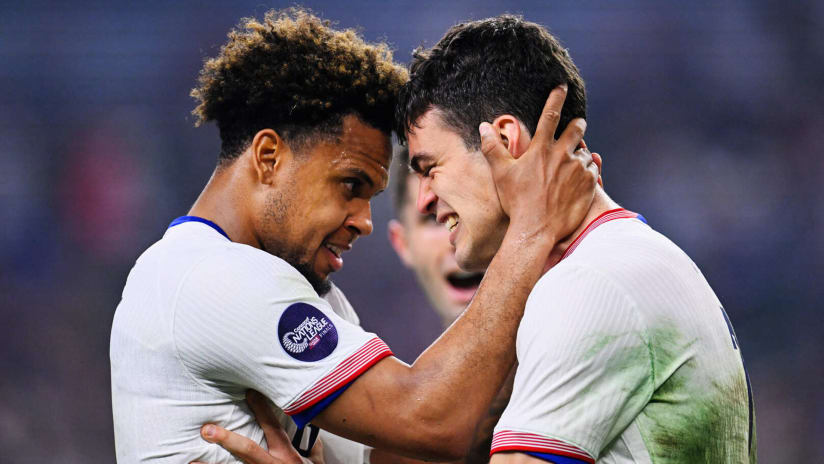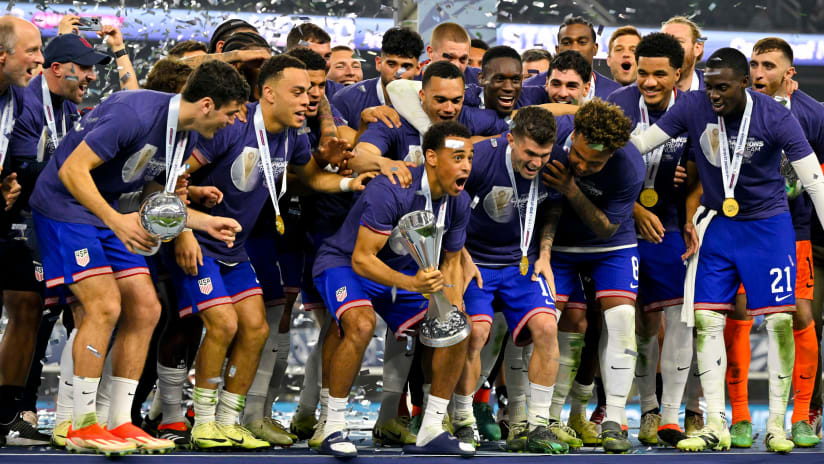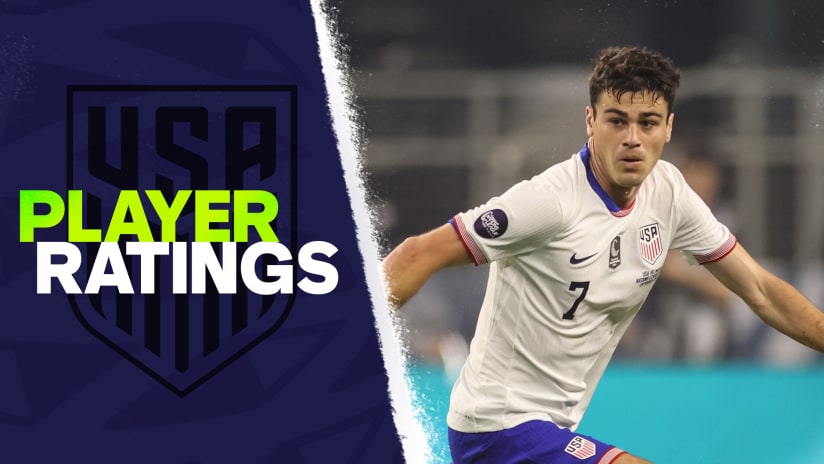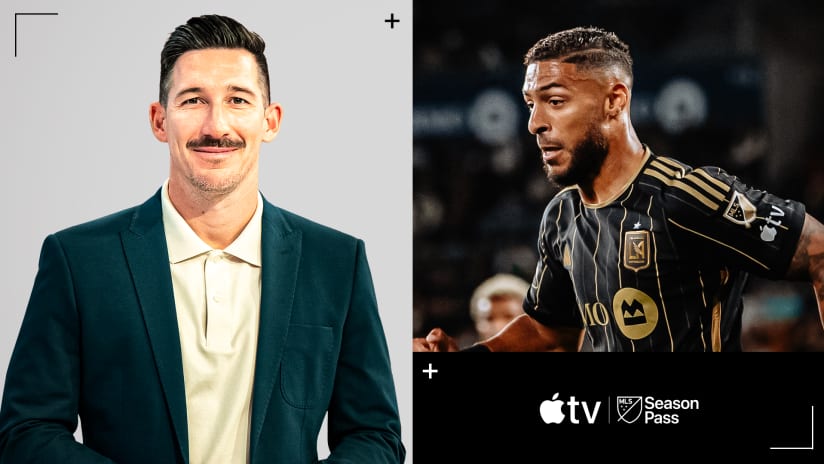CARSON, Calif. – Jurgen Klinsmann pointed to a lack of fitness as a big reason for the US national team’s 3-2 loss Wednesday to Chile.
And on Monday, after the US returned to their January training camp, Klinsmann said while that’s certainly been an issue as the Yanks have won just once in nine games dating back to the group stage in last summer’s World Cup while going winless in their last five, it’s just one problem among many.
It’s more of a sign of where the US is in its evolution as a soccer nation, he said.
“Obviously, you don't want to lose games, no matter what. No matter what stage of the year you are or who's there and stuff like that,” Klinsmann said following a training session Monday morning at StubHub Center, ahead of Sunday's friendly against Panama. “You want to get always results and also to get the respect from the opponent, and you'd rather get a compliment than [criticism]. It's just normal.
“In many different ways, [the results are] explainable. The tension drops after the World Cup. I think all of the teams go through that, but I think the more experienced teams, the teams that have far more peer pressure in their environment, they maybe allow themselves to drop 10 or 20 percent and not 30 or 50 percent. That is the different to what we deal with [in] the aftermath of the World Cup in Brazil.”
It's shown up in a series of poor second halves to matches, with the US conceding late goals in October draws with Ecuador and Honduras, November defeats to Colombia and Ireland and as Chile tallied twice in the final 25 minutes as the Americans wasted another early lead.
Klinsmann believes education is paramount, and he's working to ensure his pool understands what they need to do with their club teams and during the offseason.
“A lot now I to explain [to] the players that [diminished form] can happen like that, that they reflect why they dropped it,” he said. “Many reasons why you give results away the last 20 to 25 minutes. One reason I mentioned in [Chile] is the fitness topic, but fitness plays the same role as the mental side of it, the attention side, the discipline side. ...
“It's a learning curve, and also in a certain way a wakeup call for everyone that it's not just by coincidence that you pass the group of death [at the World Cup] and then suddenly you drop [in from], so hopefully they take a lot of positive information with them. Now going forward, obviously, you want to correct that, you want to explain why these things happen and to correct the errors and kind of turn it around and say, 'OK, now we know why we lost against Chile. We have an opportunity with Panama to show that we learned a couple of things and out it in place right away.' ”
The natural post-World Cup letdown is more pronounced here, Klinsmann says, than with the global powers because “their club environment puts them back on their toes.”
- READ: Player ratings vs. Chile
“They have no time [to relax],” he said. “Yeah, maybe the first month, they can kind of [play with] 80-90 percent in them, and everyone forgives [Lionel] Messi or [Cristiano] Ronaldo not to score right away. But then by September, everybody is back in line. Meanwhile, our players are not there yet, educationally and mentally, to understand that dynamic, and they lose their spots in their European teams or they drop 40 to 50 percent in MLS. Or wherever they play.
“It's an educational topic we try to talk them through. You've got to understand again to take these things in your own hands, and whatever you lack in that moment, when these phases happen, that you have to work yourself back: 'OK, I understand that I'm not where I should be now ... for sure I'm behind now, so I've got to get myself back into pole position.' And that's what they're going through right now. They've lost their pole position because [the World Cup] was a lot for them. [And] our players are not yet in an environment where they actually get put into line right away.”
The American players, he said, need to realize that they need to outwork the players ahead of them at their club or they're not going to see playing time.
“You have to learn that process,” Klinsmann said. “And a lot of us, it was the first World Cup, too, and it's a huge learning curve. I can be as big of a help every time, saying it and saying it and become a broken record, but at the end of the day the players themselves have to realize it and have to switch gears and say, 'I get it, there are reasons I'm not playing right now.' It's not because their coaches don't like them. It's because somebody else is in front of them.”
The current fitness issue is mostly about players coming off offseason breaks and needing to build fitness. The January camp always has been seen as something of a preseason gathering, but Klinsmann said the friendlies with Chile and Panama redefine it as something more. He'd like to see them further along with their fitness when they arrive in camp.
“It's difficult for me now to get them out of vacation. Some of them played their last game in October. In October!” he said. “I want to help them get back into shape, get back into rhythm, but, oh, by the way, we're going to play [two friendlies]. So some learned over time and prepared themselves really well, and some don't have that knowledge yet.
“They don't have that, 'Oh, OK, at the beginning of December, go to Athletes' Performance in Phoenix and get myself fit.' That culture we don't have yet. What the other sports are doing really well, they use their preparation for preseason, four to six weeks prior to going into preseason with their NBA team, NFL team of whatever, they go to these fitness institutes and they get themselves fit.”
Klinsmann says he and his staff give the players an outline they should follow.
"But the culture is not there," he said. "They've got all the material. They should have done that [work] twice a day, but reality is still different. Reality is, education-wise, we are not there yet, that they understand, 'Oh, I've got to do this, I've got to do that.' It's a lot to discuss. It's fine. It's just where we are right now, and we want to keep improving.”
Klinsmann also dismissed the idea that results aren't important, in the grand scheme, until this summer's CONCACAF Gold Cup.
“Results do matter,” he said. “They build confidence, and you want to have that path go the right direction before you go into a Gold Cup that, hopefully, gets us to Russia 2017 already with the Confederations Cup. ...
“Even if we build, obviously, a very difficult schedule, it doesn't mean we can't get results. It should actually inspire you even more to say, 'Let's go to Denmark [on March 25] and try to beat them and go to Switzerland [on March 31] and give them a real game,' and then the two big ones with Holland [on June 5] and Germany [on June 10]. Those games give you far, far more information and knowledge about your players than if you play [lesser teams]. ...
“Otherwise, we would stay in our comfort zone, play the games here, play a Central American team, and probably look good and get the result, but I don't see a kind of progress within the whole program [in doing that]. I mean, when you face the best teams, you have to be on your toes or you get exploited right away.”












